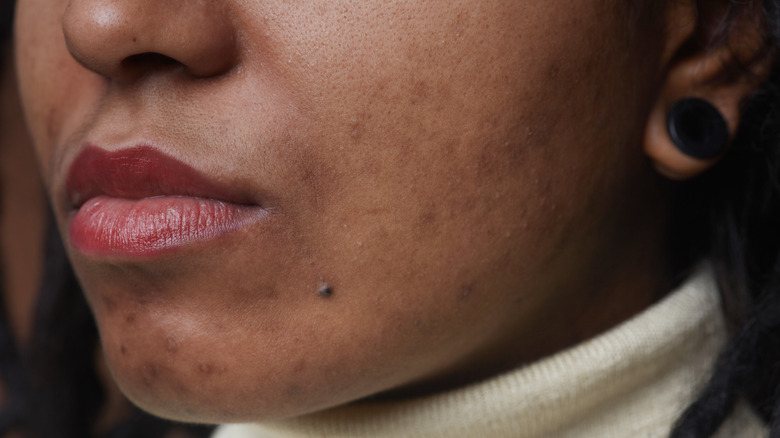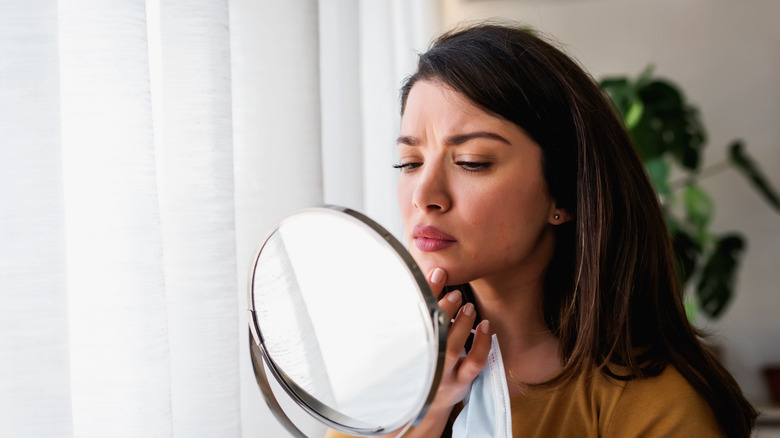How To Tell The Difference Between A Pimple And A Cold Sore
Any kind of blemish on the face is usually an unwelcome sight. We all want our skin to be in its best condition, but sometimes things pop up that are out of our control. Acne and cold sores are two common ailments — so how can we tell the difference between the two?
Acne happens when the pores, or hair follicles, become clogged, according to the National Institutes of Health. Our skin naturally contains oil that keeps it moisturized, secreted by glands in the pores. But when this oil mixes with dead skin cells and gets caught by the hairs in the follicles, the pores become clogged. This allows bacteria to grow and inflammation to occur, leading to pimples.
Cold sores, also known as fever blisters, are fluid-filled sores most commonly caused by the oral transmission of the herpes simplex virus type 1 (HSV-1), according to the Mayo Clinic. Transmission can occur via person-to-person contact like kissing and often cause outbreaks to occur around the mouth. HSV-1 is very contagious, and an estimated 67% of people have the viral infection (via World Health Organization).
Key differences between the two
While these two skin conditions can look similar, there are some clues that can help you tell a pimple from a cold sore easily (via Verywell Health). Pimples do not develop on the lip itself, while cold sores can. Cold sores can also develop around the nose, lips, chin, and eyes. Pimples form a raised red bump that may have a whitehead in the middle, while cold sores form tiny blisters that typically clump together. Both can be painful, but cold sores often tingle and burn, eventually cracking, oozing, and crusting over as it dries out.
Acne is typically treated and prevented with over-the-counter spot treatments, ice, or daily medication, according to Verywell Health. And your skin may actually heal faster if you avoid popping or picking at pimples. Cold sores are treated with specific medication that shortens the healing time. Both over-the-counter medications like Abreva or antiviral prescriptions help, though there is no cure for HSV.


